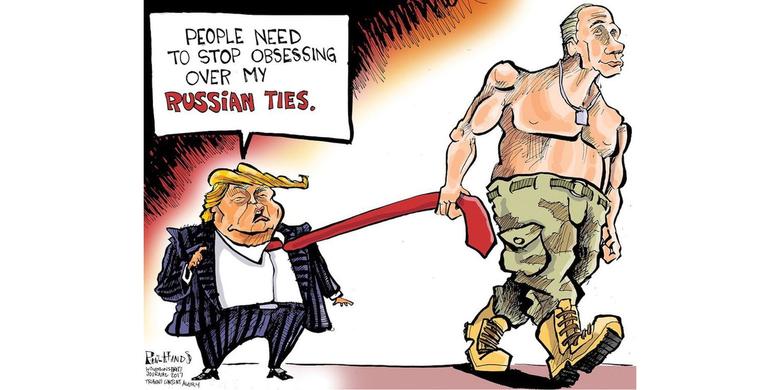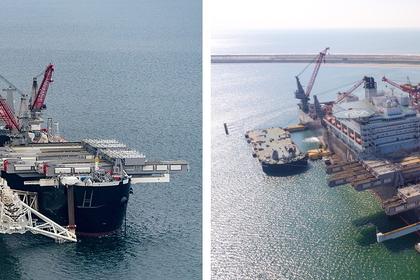
U.S., RUSSIA SANCTIONS AGAIN

PLATTS - The US is set to impose sanctions on Rosneft if it continues to trade crude oil and fuel with Venezuela's PDVSA in exchange for debt repayments and stakes in joint venture projects in the South American nation, a senior Trump administration official told S&P Global Platts.
"These types of schemes are increasingly how Maduro buys foreign support," the senior official said in an interview, conducted on the condition of anonymity. "We will be looking at taking more measures to deal with those type of barter schemes, which are clearly benefiting the Maduro regime."
The measures being considered are sanctions, the official said, but the official declined to discuss how they may be structured.
Last week, President Donald Trump signed an executive order threatening to freeze the US assets of any person or company it determines has materially assisted the Maduro government. The order does not explicitly sanction companies doing business with PDVSA, but the official said it does serve as a final warning that sanctions will be imposed against any company continuing to trade with Venezuela's state oil company.
Some analysts have speculated Rosneft may continue to trade crude and fuel with PDVSA despite the executive order, since Rosneft was not being directly paid for those deals and due to the impact US sanctions may have on Western oil companies tied to the Russian company and its deep reach in the global oil market. The US "has shown a proclivity to avoid major sanctions on large foreign-owned firms, including Rosneft, which is PDVSA's main facilitator in avoiding existing sanctions," analysts with the Eurasia Group wrote last week.
But the senior administration official told Platts that sanctions would be imposed if these trades continued.
"We will now be looking at patterns since [Trump signed the executive order on August 5] and we will be taking action in support of the president's maximum pressure policy," the official said.
The official declined to comment on a time frame for when sanctions may be imposed. US Secretary of State Mike Pompeo and US National Security Advisor John Bolton have repeatedly declined to comment on sanctions timing.
PDVSA plans to export 680,000 b/d of crude in August, according to a PDVSA document seen by Platts. A PDVSA source said the company was hoping to export at least 3.9 million barrels in August, or roughly 125,800 b/d, to Rosneft, to repay debts. A PDVSA spokesman could not be reached for comment Thursday.
Rosneft said in May it had come to an agreement with US authorities for delivery of Venezuelan crude to Rosneft's Indian refinery, as the deals were carried out using prepayment contracts. But administration sources told Platts the US never made such an agreement.
'PROCEED WITH EXTREME CAUTION'
Administration sources have said the executive order was intended as a warning to Rosneft to stop trading with PDVSA, which administration officials see as providing the chief, remaining support to Venezuela's oil sector.
"With the president's [executive order], we have signaled to third parties or countries that want to do business with the Maduro regime: proceed with extreme caution," the senior official told Platts. "Any interaction that any of these foreign companies have with PDVSA, under the current [executive order], exposes them, absolutely."
PDVSA still has significant debts with Rosneft. From June 2014 through November 2016, PDVSA and Rosneft signed six prepaid contracts, which include payments with crude and refined products. Of these contracts, only one has been completely canceled.
Rosneft is a partner with PDVSA in several upstream joint ventures, including PetroMonagas, PetroPerija, PetroVictoria, Boqueron and PetroMiranda.
The administration official cautioned that Rosneft was taking part in these debt repayment agreements without guarantees from the Maduro regime and facing mounting sanctions risk from the US.
"It is beyond clear that it is not beneficial for [Rosneft] to be involved with these types of activities with Venezuela," the official said.
Last week, Bolton warned against the risk of continuing to do business with PDVSA.
"There is no need to risk your business interests with the United States for the purposes of profiting from a corrupt and dying regime," Bolton said.
A Rosneft spokesman declined to comment Thursday.
It is unclear what sanctions the US would take against Rosneft. Sources familiar with the administration's discussions around potential sanctions said they may target a specific division within Rosneft, rather than the entire company, in order to dull the impact on global crude flows and commercial dealings with Western companies. This could mean that any potential sanctions on Rosneft might be limited, in order to lessen the impact on international oil companies involved with the Russian company.
"This could be a big step, because secondary sanctions are powerful stuff," said Kevin Book, a managing director with ClearView Energy Partners. "They can get messy, too. Keeping sanctions against Rosneft from affecting relationships with Western partners will take a special sort of art, like ice-sculpting with a chainsaw."
In January, the US unveiled sanctions on PDVSA that have served as a de facto ban on US imports of Venezuelan crude and an immediate ban on US exports of diluent to Venezuela. On April 28, the US prohibited transactions between non-US firms and PDVSA involving the US financial system, essentially banning the use of US dollars in all transactions with PDVSA.
In June, the US Department of the Treasury announced further prohibitions on essentially all diluent trade with PDVSA, which the company uses in the production and marketing of its heavy crudes.
Venezuelan oil output fell to 730,000 b/d in July, down from more than 1.4 million b/d in the year-ago period, according to the latest Platts OPEC survey.
-----
Earlier:













